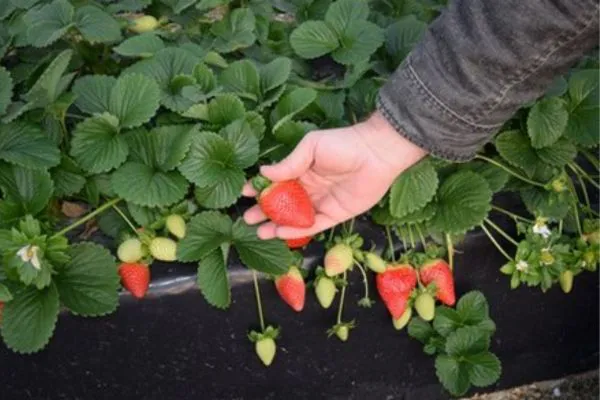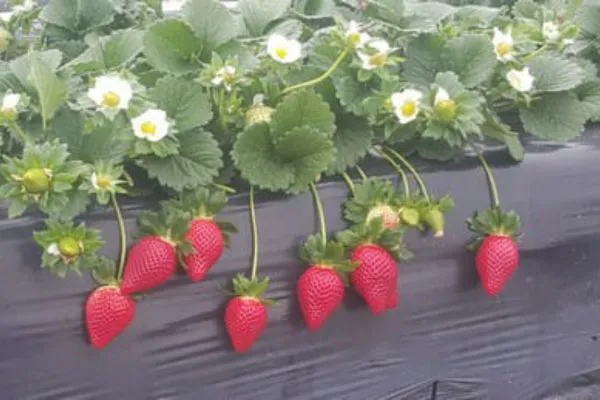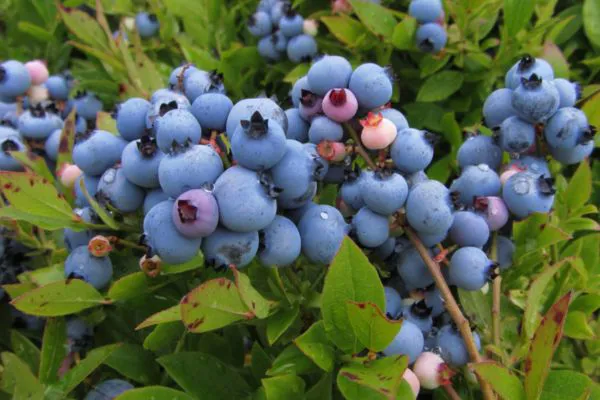The soft fruit season is about to end in Morocco earlier than usual due to adverse weather conditions that have exhausted the plants and a low demand that demotivated producers. Zouhir Daissoria, Moroccan soft fruits producer and exporter, comments on the situation.
"After an abrupt end of the season for blueberries, the campaign of raspberries and strawberries will follow the same way with an early end in the coming 2 weeks. The season has been marked by great challenges in production and marketing." These unavoidable challenges have left growers helpless, with no choice but to end production and learn the right lessons for the seasons ahead.

Zouhir explains, "The first challenge we faced since the beginning of the season is the decrease in demand compared to last season. For example, Russian demand has dropped by 60-70% due to the political situation. It has been difficult, if not impossible, to deliver by sea to Russia because of the European sanctions, and the cost of air freight makes the end price too high for Russian consumers. In Europe as well, which is our first market, demand has dropped a lot due to global inflation, which has lowered purchasing power and forced consumers to change their behavior, cutting out non-essential products from the table such as soft fruits."
However, certain markets have saved the season, adds Zouhir, " Gulf countries have maintained a stable demand, as have the UK. The best market for us at the moment is the UK, which has maintained a good demand and a good price level. Large scale exporters prefer this market and do 80-85 of their business with the British, especially in raspberries."
The second challenge is related to climate. Morocco is facing unusual temperature swings and a year of drought never seen in the last four decades. Zouhir says, "For strawberries and raspberries, temperatures were too high at the beginning of the season when the plants needed cold weather and were too low when the fruit needed warm weather. Damage was significant. Some raspberry varieties usually give a yield of 7 tons per hectare at least, while this year, the average yield was 5 tons and as low as 2-3 tons for some growers. This example is valid for all varieties of all other soft fruits."
According to the producer, the climate problem is mainly related to temperatures and is not directly related to the drought that the country is experiencing, "The drought has not affected us directly. Soft fruit producers do not rely on rainfall and have more modern operations, using the usual means such as drip irrigation. Groundwater is abundant in the red fruit regions, such as Larache."

"All these problems caused an end of season earlier than last year. Most of the producers will finish the season in 2 weeks, while it lasted until the end of June last year and even until mid-July for some varieties of raspberries. The plants have nothing left to give in these difficult climatic conditions."
The producers' sorrow has been doubled by much lower prices than usual, says Zouhir: "The difference in prices is substantial, especially for strawberries and raspberries. Let's take production gaps as an example, knowing that fresh fruits had the same fate. Last year for gaps used in frozen fruits, the season started at 33-40 MAD. This year at the beginning of the season, the best price for gaps that we received came from Portugal and was only 13 dh, prices were as low as 2 dh in the worst cases, to the point that many producers preferred to destroy gaps than to sell them. Blueberries were an exception and have kept a satisfactory price level compared to last year."
However, seen from a price perspective, when faced with insufficient demand, the drop in volume has been rather positive for producers, Zouhir assures. "The opposite would have been catastrophic, and prices would have fallen beyond what is bearable. Usually, we have 2 or 3 periods of peak production where prices fall. However, this year, we only had one peak period during the month of April, when prices reached very low levels."

Subsequently, the producer foresees an increase in the surface of blueberries from the next season: "Blueberries have done better this year than strawberries and raspberries in terms of prices, despite an early end of the season because of the climate. Producers also prefer blueberries since the cycle of the plants lasts up to 10 years, compared to 2 years for other red fruits, after which it is necessary to replace the plants. I already see some fellow producers increasing their surface by at least 120 ha only in the commune of Awamra, where I am located."
Zouhir continues, "Regarding other soft fruits, most likely raspberries will keep the same acreage, while strawberries will fall by at least 10-15% since a good number of producers will convert their area for the production of potatoes that are reached record prices this season and have become very attractive."
These changes that took place in the north of the country, the stronghold of soft fruits, are also being seen in other areas in the southern region of Souss Massa. With the government-imposed restrictions on tomato exports, many producers in Souss Massa have preferred to convert their greenhouses to the production of soft fruits. Zouhir comments: "This represents large areas. The farms in Agadir are vast, in the order of 30-60 hectares, compared to 5-10 hectares per farm in the north. And in addition to producers who have converted their acreage from cherry tomatoes to berries, there are also those who specialize in berries who chose to move to Souss Massa. This will also lead to a considerable increase in soft fruit acreage in the near future."
For more information:
Zouhir Daissoria
BLDIOFROOT
Tel.: +212661902434
Email: [email protected] / [email protected]
